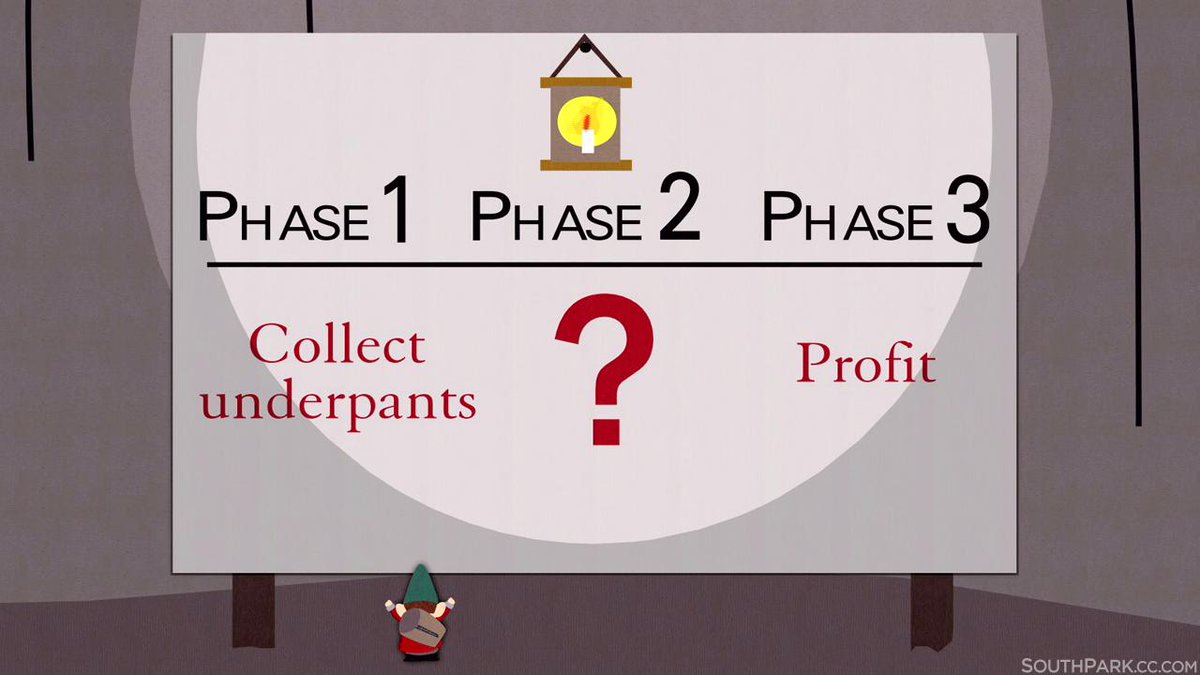
I'm generally positive about minor parties, last expressing that sentiment in Vox explains how proportional representation can solve gerrymandering and help minor parties. However, they will not solve all political problems, as I described in On American political parties held captive by their interest groups and ideologies. One of the problems I did not mention appeared in a video I used in a comment on Republicans Will Have to Make a Choice at Booman Tribune.
"I await a third party movement."Here is Third parties are the underpants gnomes of American politics.
I'll let Ezra Klein of Vox answer that for me.
Could a third party fix the hellscape of fail that is the United States Congress? Ezra Klein explains.My summary was "No, although that's not really what I think you're after." My response could have been more pointed. I could have done for liberals what Pizza Man Cain wants a third party for conservatives, never mind three already exist did for conservatives, pointing out that the Green Party already exists and he could join them. As it was, I trolled the person asking the question gently another way.
By the way, be flattered. I was going to post this in response to Brodie, but I decided you were more deserving. Besides, this comment will land directly below his anyway.I can throw shade and still be civil. I think that's a good skill to have.
We don't have to theorize -- we can learn from the experience of other countries that do have third parties with substantial power. Israel's political system, which doesn't divide the country into constituencies, is very conducive to small parties winning a few seats in the Knesset. What this means in practice is that small crackpot parties can hold the whole country hostage because they hold the balance of power between the big two. That's how, for example, small religious parties have been able to impose certain laws on an overwhelmingly secular society.
ReplyDeleteIn Germany there are three or four third parties that sometimes get as much as 12% of the seats in the Bundestag. Somewhat as the video predicts, this creates paralysis because two or three parties have to be able to form a coalition to function. Germany just had a national election and may be forced to hold another one soon because no one can agree on a workable coalition. The UK almost ran into the same problem after its last election.
The US system does have advantages. Any political force that wants to win a share of power must become part of one of the two major parties. This forces moderation of extremist views since they have to be able to cooperate with the other factions within that party. Such a group that insists on forming a third party (like the Greens and Libertarians) never wins any position of real power because the system creates such high barriers to entry for small parties. This means that people who can't compromise get frozen out, which is a good thing.
Also, it's not true that the US system prevents anything from getting done. The Democrats passed Obamacare, for example. If you want to get ideas translated into action, the way to do that is to work for a supermajority for the party you favor, not waste time on minor parties which will never get anywhere.
The reason the Republicans can't get anything done (thank goodness), despite controlling the whole government, is that they are too factionalized into groups that don't want to compromise -- that is, parts of their party function de facto like minor parties. So, for example, they couldn't repeal Obamacare because different factions had irreconcilable demands on exactly how it should be done. And their majority in the Senate is too small to overcome this problem.
Trump actually resembles the video's scenario of a third-party President. He ran as a Republican, but he's far from a conventional one. Having alienated many Republicans, he doesn't have much actual base of support in Congress and may well end up being impeached because of that.
I suppose a third party might grow to major size if it embodied some oddball position neither of the big parties does (pro-choice, racist, and nationalist, for example, as the video says Perot's supporters were), but I think it's unlikely. There are too many different "oddball" positions like that for any one of them to command really major support. You'd end up with several "Perot" parties, not just one. And even if it were just one, it would still just end up draining off votes from whichever big party it most resembled, handing victory to the other.
Most people understand this. I'm "oddball" in the eyes of some in that I agree with the Democrats on most issues but am strongly pro-gun, pro-Israel, and not sympathetic to out-of-control immigration. But even if there were a third party with exactly that combination of positions, I wouldn't encourage people to support it. It would simply drain off votes from the Democrats and help the Republicans. We have to deal with the system the way it really is.
This is a really good comment, but it's long enough that I'm going to respond to it in a post of my own. That may take a while.
DeleteYeesh, I didn't realize how long that was getting. I'm not trying to "colonize" your blog here. :-)
ReplyDeleteI don't mind. Better you than the spammers!
Delete